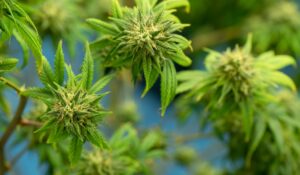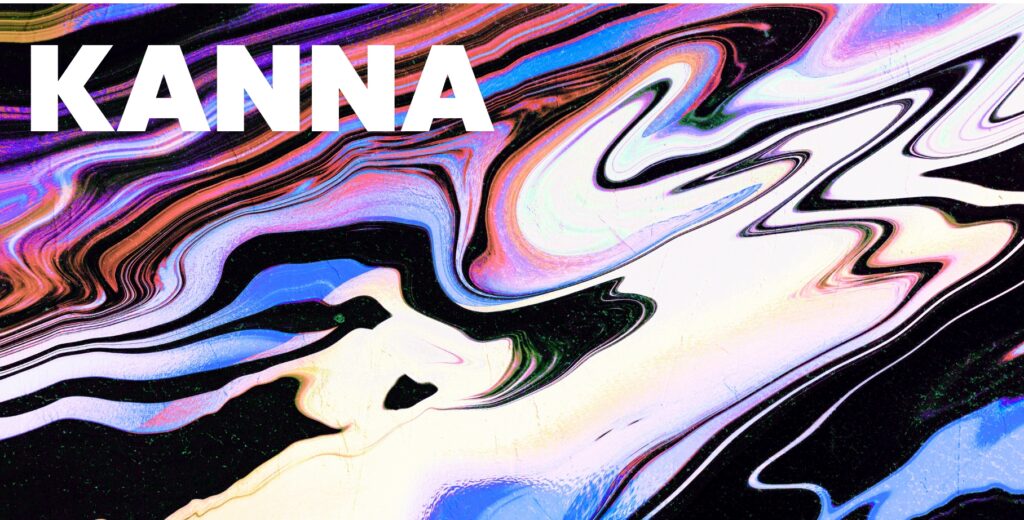
A Classic Cannabis Concentrated Extract Debate: Live Resin vs. Live Rosin
Cannabis has gotten a lot more complex over the last decade. With legalization sweeping across different regions of the country, more cannabis companies and brands

There has been something of a new wave of botanicals, herbs, and mushrooms hitting the market, which promise to offer valuable medicinal/recreational benefits while being totally legal in the U.S. One of the lesser known ones is kanna, also known as channa, or kougoed. This South African plant is finally starting to get its fair share of the spotlight. In fact, more people in the Western world are experiencing its benefits for themselves.
Kanna, or as it’s scientifically known as “Sceletium tortuosum”, is a psychoactive succulent plant native to South Africa. It actually goes by many names, depending on where you’re from. And, up until recently, it was almost completely unknown outside of its native territory. This is despite being a staple of South African culture, thanks mainly to its psychoactive properties which have been used ceremoniously for generations.
Kanna is ingested, and traditionally, it has been chewed. Of course, the modern market has given us alternatives, such as kratom gummies, capsules, teas, and beverages.
Yes, kanna is intoxicating. Its effects are generally said to be empathogenic (capable of enhancing empathy and connectedness), while offering feelings of euphoria and relaxation. Although it’s classified by many as a hallucinogen, other say that it’s less intoxicating than cannabis. It is possible that some people experience the effects more strongly than others. And of course, the power of these effects are dependent on dosage.
What we do know is that kanna can be both sedating and stimulating, sort of like alcohol is. Still, the majority of its users will describe the high as gentle, and quite manageable, without causing any major impairment of any kind.
The effects of kanna come primarily from its alkaloids. Kanna is high in oxalic acid, which can have powerful effects on our neurotransmitters like GABA, melatonin, and serotonin, hence its mood-lifting properties. Oxalic acid must be fermented before it’s active and capable of being effective, which is why kanna is prepared in a special way before it’s ready for use. A lot of the kanna you see today comes in extract form, which’s easier to incorporate into various product formulas.
Again, as for the intoxicating properties of kanna, it seems that they can vary from person to person. Mainly based on personal accounts, of course. It’s likely that small dosages are more calming, while higher dosages are more stimulating.
It’s also likely that higher doses of kanna can cause visual effects to occur. Hence, its occasional classification as a hallucinogen. Still, these effects seem to be mild compared to, say, psilocybin or LSD.
But, what about those benefits? As you may have guessed, research is really lacking right now. All we have is many years of personal accounts from those who have taken kanna for extended periods of time. What we’ve heard is that kanna may offer:
On top of that, kanna is being explored for its potential in treating addiction. However, no conclusive research exists at the moment.
Kanna is safe when it’s prepared properly – that is, the oxalic acid is fermented properly, and generally, kanna products on the market have undergone this process, or else customers would be in danger. Another thing to note is that kanna acts as a serotonin uptake inhibitor, which could lead to serotonin syndrome if combined with certain medications that affect serotonin levels. If you’re taking SSRI medications (antidepressants), please do not take kanna, as this can be particularly dangerous.
Otherwise, the only side effects really reported with kanna are appetite suppression, headache, and, in rarer cases, depression, due to the aftereffects of taking a serotonin enhancer – sort of like MDMA. Generally, these side effects are said to be mild and short-lived. Naturally, if you experience an adverse health event after taking kanna, please get medical attention. There is also always the risk that the product you’re consuming is fake, or even contains dangerous ingredients aside from the kanna itself.
When it comes to kanna, dosing depends on the product type, concentration of the product, and other factors including user’s tolerance and desired effects. Because of this, we strongly recommend following the label of a product. Doing so will offer a guide as to how much to take. Remember, you can also choose to microdose kanna. That way, you can experience mood benefits without getting intoxicated, just like you can with THC or psychedelic mushrooms.
Kanna is, as it turns out, totally legal in the United States. It has never been outlawed, although the FDA prohibits any products with medical claims on their labels or in their online descriptions. Generally, it’s treated as an herbal supplement. Meaning, it’s unregulated, and so consumers must aim to buy from a reputable company to avoid getting a fake or low-quality product.
The question of whether kanna can cause a failed drug test depends largely on what substances the drug test is screening for. Most standard drug tests, such as those used for employment or legal purposes, screen for specific categories of drugs, including amphetamines, cannabinoids, cocaine, opiates, and phencyclidine (PCP). These tests are not designed to detect the presence of kanna or its alkaloids. Therefore, under normal circumstances, using kanna would not likely result in a positive drug test for these common substances.
However, there are a few considerations to keep in mind:
Kanna is slowly making its way onto the market. So, you’re likely to find it anywhere other natural intoxicants are sold in the near future. Companies that carry kratom, cannabis, and amanita mushroom products are particularly excited to introduce kanna to customers. Again, make sure you’re buying from a trusted name to stay on the safe side.
Kanna undeniably offers some pretty exciting properties. This is despite how it might be new to us, but still was used for probably thousands of years. This unique plant comes in user-friendly product forms nowadays, making it easier than ever for us to explore its potential benefits. If you’re ready to dive into the world of kanna, we got you covered. Rave Kratom has incorporated this incredible botanical extract into various products, to offer a synergistic effect between the two natural substances. This is a fantastic way to find out what kanna can offer you, with product forms that’re easy to work into any routine.

Cannabis has gotten a lot more complex over the last decade. With legalization sweeping across different regions of the country, more cannabis companies and brands

Disposable vape devices have really taken off in the last few years, becoming, quite possibly, the most in-demand hemp product on the market right now.